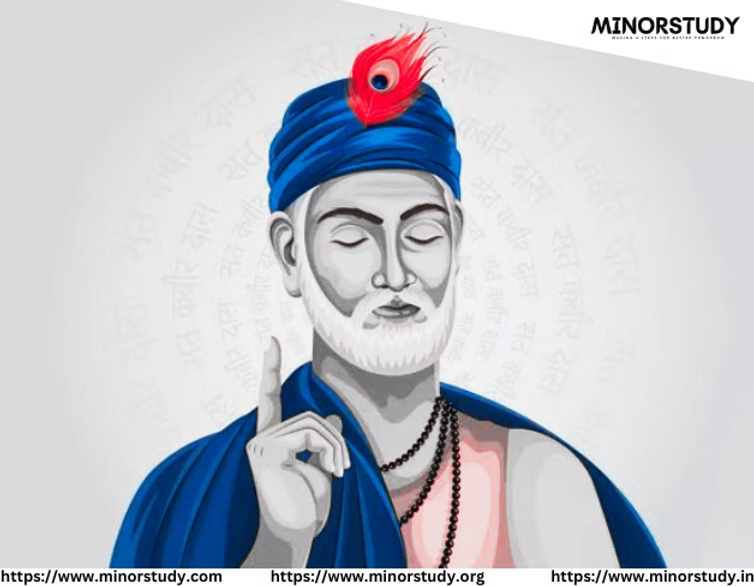Kabir: Comprehensive Overview
Who is Kabir?
Kabir (c. 1440–1518) was a mystic poet, saint, and spiritual figure whose works have had a profound influence on Indian spirituality and literature. He is considered a prominent figure in the Bhakti movement, which emphasized devotion to a formless, universal God, transcending traditional religious boundaries. Kabir’s poetry focuses on themes of unity, love, and devotion to the divine, while critiquing both Hindu and Muslim religious practices of his time.
Historical Background
Date | Event |
c. 1440 | Kabir is believed to have been born in Varanasi (now in Uttar Pradesh, India), though his exact birthdate is debated. |
Early Life | Kabir was born to a Muslim family, but his spiritual influences were diverse, combining elements of Hinduism, Sufism, and other traditions. |
Teenage Years | Kabir was raised by a Hindu couple after being abandoned at birth, leading to his exposure to both Hinduism and Islam. |
c. 1480–1500 | Kabir began composing poetry that became widely popular, critiquing religious rituals and social divisions. |
c. 1518 | Kabir is believed to have passed away in Maghar, Uttar Pradesh, where his followers built a shrine in his honor. |
Key Teachings and Philosophy
Oneness of God:Kabir believed in a formless, omnipresent God. He rejected religious divisions, emphasizing that God is not confined to any specific religious ideology or ritual.
Critique of Rituals:Kabir criticized both Hindu and Muslim rituals, particularly idol worship and the empty formalities of religious practices. His teachings urged followers to focus on inner devotion rather than external rituals.
Unity of Religions:Kabir emphasized the unity of all religions, seeing the Divine as transcending the limitations of religious identity. He rejected the idea of religious division and promoted a universal spiritual path.
Love and Devotion:Kabir’s poetry often centered on the importance of love and devotion (bhakti) as a means of reaching the Divine. His concept of love transcended human relationships, embodying a deep connection with God.
Simplicity and Inner Experience:Kabir taught that true spirituality is found in simplicity and direct personal experience of the Divine, not in complex philosophies or external displays of piety.
Kabir’s Poetry and Impact
Kabir’s poems (called Kabir Ke Dohe) are written in a simple, folk style, which made them accessible to common people, regardless of their social or religious background. His couplets (dohas) were written in Hindi, often blending elements of local dialects, and they have been widely read and sung for centuries.
Themes of His Poetry:Kabir’s poetry conveys profound spiritual teachings using everyday metaphors, often involving nature, love, and the search for truth. Some of his famous couplets include:
“The river that flows in you also flows in me.”
“You cannot find God in temples or mosques; He is within you.”
Impact on Bhakti and Sufi Movements:Kabir’s influence was significant in the Bhakti movement, which stressed personal devotion to God. He also had connections to the Sufi tradition, which sought to experience God’s presence through love and surrender.
Kabir and His Followers
Kabir’s followers, known as Kabir Panthis, continued his teachings after his death. His philosophy inspired a variety of spiritual movements, including the Sant tradition, and his influence is seen in the works of later saints and poets, including Guru Nanak (founder of Sikhism) and Tulsidas (a prominent Hindu poet-saint).
Key Contributions and Legacy
Aspect | Details |
Poetry and Teachings | Kabir’s couplets (dohas) are considered some of the most powerful spiritual verses in Indian literature. |
Critique of Rituals | Challenged religious dogma and rituals, encouraging people to seek God through inner devotion. |
Spiritual Unity | Advocated for the unity of all religions and the idea of a formless, universal God. |
Bhakti Movement | A key figure in the Bhakti movement, Kabir’s emphasis on love and devotion impacted Indian spirituality deeply. |
Kabir Panth | A spiritual movement that continues to follow Kabir’s teachings, focusing on simplicity, love, and devotion. |
FAQs
What religion did Kabir follow?Kabir did not strictly follow any particular religion. He was influenced by both Hinduism and Islam but rejected the formalities and rituals of both. His teachings emphasized the oneness of God and transcended religious divisions.
What is a doha?A doha is a short, two-line poem, typically in Hindi or other regional languages. Kabir’s dohas are known for their profound simplicity and spiritual depth.
What is Kabir’s view on God?Kabir viewed God as formless, omnipresent, and beyond religious boundaries. He taught that God cannot be found through rituals but through love and inner experience.
Conclusion
Kabir’s legacy as a poet, mystic, and spiritual teacher transcends centuries and religious boundaries. His rejection of religious formalism and focus on direct, personal connection with the Divine continues to inspire millions. His teachings emphasize love, simplicity, and unity, offering timeless wisdom for those seeking spiritual truth and freedom.
Summary Table
Aspect | Details |
Birth and Early Life | Born c. 1440, Varanasi, India, into a Muslim family, later influenced by both Hinduism and Sufism. |
Teachings | Emphasized the oneness of God, love, devotion, and the rejection of ritualistic practices. |
Poetry | Famous for his couplets (dohas), which express profound spiritual truths in simple language. |
Legacy | Inspired the Kabir Panth movement and influenced many later spiritual leaders, including Guru Nanak. |
Critique of Religion | Advocated for the inner experience of the Divine rather than external rituals and dogma. |








